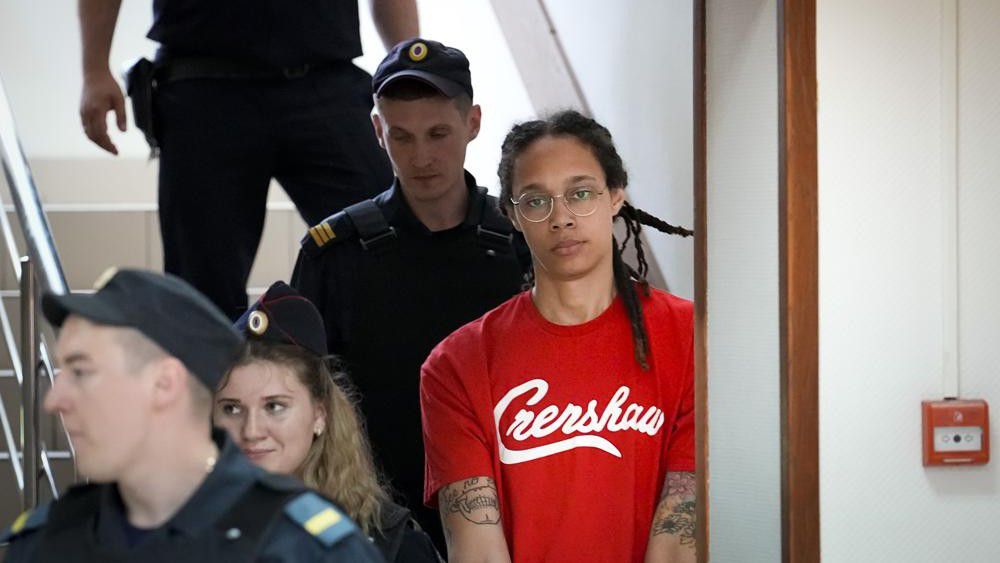MOSCOW (AP) — American basketball star Brittney Griner is due back in a Russian court Thursday to resume a trial that was jolted last week when she abruptly pleaded guilty to drug possession charges.
With the U.S. government under pressure at home to do more to secure her freedom, the guilty plea could be an effort to expedite the court proceedings so any negotiations could move forward. A senior Russian diplomat has said no action could be taken by Moscow until the trial was over.
The Phoenix Mercury center and WNBA all-star was detained at Moscow’s Sheremetyevo Airport in February while returning to play basketball in Russia. Police said they found vape canisters containing cannabis oil in her luggage. In custody ever since, Griner, 31, faces charges that could bring her a sentence of up to 10 years in prison.
In pleading guilty during the previous court hearing on July 7, Griner said she had no intention of committing a crime and had acted unintentionally because she packed for Moscow in a hurry.
U.S. President Joe Biden and Secretary of State Antony Blinken have said they were doing all they could to win the release of Griner, as well as other Americans the U.S. considers “wrongly detained” by Russia, including former Marine Paul Whelan.
Washington may have little leverage with Moscow, though, because of strong animosity over its military operation in Ukraine.
Russian media have speculated that Griner could be swapped for Russian arms trader Viktor Bout, nicknamed “the Merchant of Death,” who is serving a 25-year sentence in the U.S. after being convicted of conspiracy to kill U.S. citizens and providing aid to a terrorist organization.
Russia has agitated for Bout’s release for years. But the wide discrepancy in the seriousness of their cases could make such a trade unpalatable to Washington. Others have suggested that Griner could be traded along with Whelan, who is serving 16 years in Russia on an espionage conviction that the U.S. has described as a setup.
The State Department’s designation of Griner as wrongfully detained moves her case under the supervision of its special presidential envoy for hostage affairs, effectively the government’s chief hostage negotiator. The classification has irritated Russia.
Asked about the possibility of Griner being swapped for a Russian jailed in the U.S., Deputy Foreign Minister Sergei Ryabkov, the senior Russian diplomat, noted that until her trial is over “there are no formal or procedural reasons to talk about any further steps.”
Ryabkov warned that U.S. criticism, including the description of Griner as wrongfully detained and dismissive comments about the Russian judicial system, “makes it difficult to engage in detailed discussion of any possible exchanges.”
Griner’s detention has been authorized through Dec. 20, suggesting the trial could last months. Griner’s lawyers, however, said they expect it to conclude around the beginning of the August.





